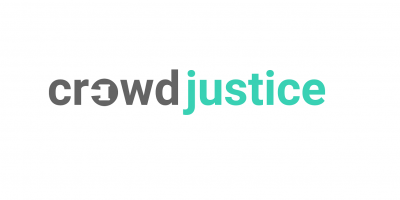 Julia Salasky, 34, is the CEO and founder of CrowdJustice, a crowdfunding platform that provides support to help raise funds and increase public awareness for legal cases. As a former UN lawyer, Julia believes that the law should be available to everyone. We chat to her about her career path, creating a start-up and why the legal industry is more exciting than ever before.
Julia Salasky, 34, is the CEO and founder of CrowdJustice, a crowdfunding platform that provides support to help raise funds and increase public awareness for legal cases. As a former UN lawyer, Julia believes that the law should be available to everyone. We chat to her about her career path, creating a start-up and why the legal industry is more exciting than ever before.
What made you want to become a lawyer?
A mix of not knowing what to do with my life and thinking that the law was somehow a noble profession.
What would your advice be to anyone thinking of studying law?
I think the only advice I can give is to treat your studies (whether you decide to read law, or, like me, you choose a different subject and come to law later) as a time of true learning – if it’s law that gets you out of bed, join a debating club or a mooting competition, meet as many people as possible who are practising in different areas, ask as many questions as you can, and try to think critically about how the law interacts with the changing world we are living in.
Aside from being the CEO and founder of CrowdJustice, what are your career highlights?
A few years ago I was seconded to a legal aid clinic, where I helped vulnerable clients who were facing debt issues and eviction from their homes. I went to court for clients, and in one case managed to negotiate a settlement to a case that was really emotive, an 85-year-old man who was being evicted from his home – I managed to ensure that he was allowed to stay there for the rest of his life. It was on the one hand a career highlight, but it also really struck me how important it was that in cases like that someone had access to some legal representation, no matter how basic (I was pretty inexperienced at the time!).
What was the motivation behind launching CrowdJustice?
I have seen firsthand how difficult it is for people to access the legal system, and how increasingly, with legal aid cuts, increased court fees and some pernicious legislation (for example increasing costs caps in certain cases), it’s getting harder. More than that, it struck me that we’re living in an age when it is so easy for people to come together around issues that affect them, and that people want to feel empowered to help others or to create change for their communities. I thought CrowdJustice could bridge that gap and in some way democratise access to the law.
You left your job as a lawyer at the UN to start CrowdJustice – did it feel like a leap of faith?
Of course it did, but to start anything new you have to embrace the idea that it might fail, that you might end up with egg on your face. Nothing new would get off the ground if people didn’t take those leaps from time to time!
Is there anything you wish you knew before you started?
I am actually just glad I didn’t know how hard it would be.
What is the best part about your job?
It’s really extraordinary to see people use the platform in a way that enables them to take a case they might not otherwise be able to take. Seeing for example a group of twenty-somethings crowdfund to be able to hire great lawyers to take a case about voting rights in the Labour party, or a community feel able to band together to challenge a local development, is hugely exciting. It shows that the law can be accessible to people, and that communities will come together, to use this tool that can be very powerful as a vector for change.
Huge day for CrowdJustice backers as court decides Parliament must decide on Brexit! https://t.co/6GB5P9jodM
— Julia Salasky (@juliasalasky) November 3, 2016
And the most challenging?
Doing something from scratch is never easy – there is no rule book and no one else to fall back on. That can lead to hugely long hours and late nights and the constant feeling that you are never going quite fast enough…
What is a typical day like for you?
A day can be anything from meeting with lawyers or non-profits, to working with our tech and product team to develop new features, to talking to press to ensure the message is getting out there, to interviewing candidates for a new role, to doing all the operational things that running a business entails.
https://vine.co/v/e5p5HuY77IB
How is the legal field changing?
I think in the medium term we will see technology making more in-roads into the legal world. One of the things that makes building CrowdJustice so exciting is that we’re at the forefront of seeing the ways in which technology can bring people together to really engage with and access the law.
Why is it an exciting time to work in this industry?
It’s never been a more exciting time to work at the intersection of law and technology. There are so many possibilities to increase access to justice, and we are just at the beginning.
What’s next for you and CrowdJustice?
We are learning all the time, and trying hard to expand the reach of what we’re able to do and the number of people we’re able to help. We’ll soon be set up to take on cases in the US – which will bring on new opportunities to create change, and, inevitably, more challenges!
What advice would you give to anyone who’d like to work for you?
Our team is made up of people with a range of experience – from a tech and digital background, to those with experience in the law and campaigning. What we value most is someone’s ability to be collaborative, go-getting and adaptable – and of course, a true passion for our mission to make the law more accessible.
@CrowdJustice

